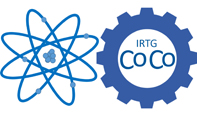18.02.2016 - Tanja E. Mehlstäubler - Scaling up Ions for Optical Clocks
| When |
Feb 18, 2016
from 12:00 PM to 01:00 PM |
|---|---|
| Where | “VIP-lounge”, Gustav-Mie-Haus, 4th floor |
| Add event to calendar |
|
Time and frequency are the most accurately measurable quantities today. In particular, optical clocks, that nowadays can reach a relative frequency inaccuracy as low as 10-18, will open up a new field of search for deviations in the predictions of Einstein’s general relativity, tests of modern unifying theories and the development of new sensors for gravity and navigation.
In my talk, I will introduce the concepts of optical clocks and discuss the international state-of-the-art in ion clock development and challenges in clock laser stabilization and ion control to go beyond resolutions of 10-18.
In order to exploit their full potential and to resolve frequencies with a fractional frequency instability of 10-18 and below, optical ion clocks need to integrate over many days to weeks. For the characterisation of the clock, as well as for applications, such as relativistic geodesy, the long averaging times pose severe limits. Scaling up the number of ions for optical clock spectroscopy is a natural way to significantly reduce the integration time, but was hindered so far by the poor control of the dynamics of coupled many body systems. In our experiment, we implement linear Coulomb crystals of Yb+ and In+ ions to demonstrate optical clock operation. For optimal control of the ion motion segmented chip-based ion traps are engineered in the clean room facilities of PTB.
See poster.


